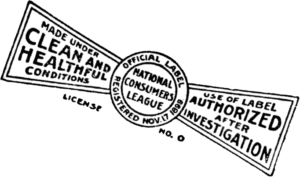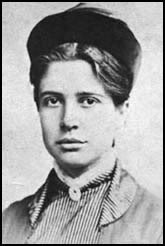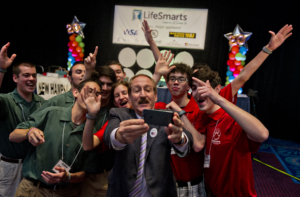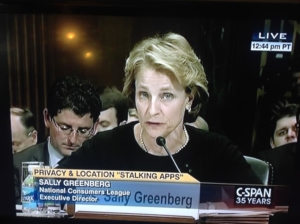Our Impact
The work of the National Consumers League is making a difference in people’s lives across the country. Meet some of the consumers touched by our programs.
Read about NCL’s impact

Preventing yet another victim
Paige, 55, a Nashville wife and mother of two, answered an employment ad for secret shoppers. Before sending payment to the scammers, she reached out to NCL.
Read about NCL’s impact

Building a stronger generation
A grease fire flared up in Decklan’s kitchen. As his family scrambled and panicked, fearing that the whole house might erupt in flames, Decklan remained calm. He hurried over to the pantry, grabbed some baking soda, and dumped it on the fire quickly extinguishing the blaze.
Read about NCL’s impact

Script Your Future saved my life
Cincinnati resident Charles, 45, lost his computer business — and health insurance— during a time of economic downturn. A diabetic, Charles was now unable to afford his medication. He stopped taking it which made him seriously ill and put his life at risk.
Read about NCL’s impact

For a safer workplace
Jeremy is a fast-food worker who has been employed at a number of Chipotle restaurants in New York City. When he was just 20 years old, he took part in an NCL research project that revealed that management practices within the fast food chain were putting workers—and food safety for customers—at risk.
Read about NCL’s impact

A Look Back on 100+ Years of Advocacy
“To live means to buy, to buy means to have power, to have power means to have responsibility.”
–Florence Kelley, first General Secretary, National Consumers League
For more than 100 years, the National Consumers League has followed these founding principles: That the working conditions we accept for our fellow citizens should be reflected by our purchases, and that consumers should demand safety and reliability from the goods and services they buy.
Promoting a fair marketplace for workers and consumers was the reason for the League’s founding in 1899 and still guides us into our second century.
NCL’s Early Years

During the late 19th century’s Progressive Era, social justice movements emerged to protect the interests and promote justice for working people. As part of that movement, the National Consumers League was chartered in 1899 by two of America’s leading social reformers Jane Addams and Josephine Lowell. These two women were pioneers in achieving many social reforms in communities and workplaces across the country. Under the direction of its first general secretary, Florence Kelley, the National Consumer’s league exposed child labor and other scandalous working conditions. Kelley was to become one of the most influential and effective social reformers of the 20th century. During the early 1900s, she led the League in its efforts to:
- protect in-home workers, often including whole families, from terrible exploitation by employers
- promote the Meat Inspection Act of 1906 and the Pure Food and Drugs Act of 1906
- write and then champion state minimum wage laws for women
- defend and ultimately convince the US Supreme Court to uphold a 10-hour work day law in the landmark Muller v. Oregon case of 1908
- advocate for creation of a federal Children’s Bureau and federal child labor restrictions
Along with New Jersey Consumers League Director Katherine Wiley and Louis Brandeis (who later became a Supreme Court justice), Kelley achieved a lifetime’s worth of accomplishments in her 33 years as leader of the League. She worked alongside many other reform-minded women and men to achieve her goals and served as inspiration and mentor to FDR’s Secretary of Labor Frances Perkins, the first woman ever to serve in as a cabinet member and a close confidant and influential advisor to the FDR.
Mid-Century Challenges

The leadership of the National Consumers League struggled to contend with Kelley’s death in 1932, facing the burden of maintaining the group’s vigor after losing its long-time leader. Lucy Randolph Mason directed the League for the next five years, and Mary Dublin (Keyserling) directed from 1938-1940. In 1939 Dr. Caroline Ware began advising Dublin regarding activities in Washington, D.C. under the administration of President Franklin Delano Roosevelt.
With first lady Eleanor Roosevelt serving as vice president of the League and testifying on behalf of the organization on numerous occasions, during this time the League focused on passage of the 1938 federal Fair Labor Standards Act. This comprehensive, landmark legislation addressed issues the NCL had raised since its inception including child labor, minimum wage, restrictions on hours worked, and industrial homework. Taking advantage of the expanding definition of social welfare as seen through the ideas of the Roosevelt administration, the League also advocated for:
- national health insurance
- improved food and drug safety laws
- federal pesticide monitoring
- social security legislation especially for the elderly or disabled
- unemployment insurance
From 1943-1958 Elizabeth Magee directed the NCL, transferring the group’s office to Cleveland, Ohio, her home. Magee placed new emphasis on:
- health assistance for migratory workers
- Medicare and Medicaid
- wholesome meat and poultry
- Truth-in-Packaging legislation
- food additive and color testing
- worker safety in atomic industries
During the 1970s and 80s, NCL Executive Director Sandra Willett (Jackson) increased attention to consumer education through the “Assertive Consumer” project. The League also promoted consumer participation in government decision-making, which helped open the doors of federal agencies to consumers and their views. During this period, such national figures as Esther Peterson served as vice president of the League. Peterson, a renowned labor and consumer leader, regularly testified on behalf of the League. Peterson became head of the White House Office of Consumer Affairs under President Jimmy Carter and had served as consumer advisor to Presidents Kennedy and Johnson before that.

The 1980s saw significant changes develop in the nation’s health care system. Responding to the need to provide consumers with useful information about these changes, the League, under Barbara Warden’s leadership, organized a major Consumer Health Care Conference, launched a series of consumer health care guides, and established a Medicare education program. The League also:
- supported enhanced enforcement powers for the Federal Trade Commission
- opposed the revival of industrial homework sweatshops
- defended Social Security and Medicare
Under the direction of Linda Golodner (1985 – 2007), the League expanded significantly, continuing to develop its consumer education programs and increase its activism in opposing exploitative child and sweatshop labor. In the late 80s, the group established both the Alliance Against Fraud in Telemarketing and the Child Labor Coalition. The Alliance led to the League’s long-term program, the National Fraud Information Center (later called NCL’s Fraud Center, now simply www.Fraud.org), established in 1992 to assist consumers directly with telemarketing fraud inquiries. Under Golodner, NCL took over the LifeSmarts program, the Ultimate Consumer Challenge, a fast, fun, gameshow-style Internet based consumer education competition for teens and tweens. (Complete information can be found at www.LifeSmarts.org.)
The 21st Century and Beyond
Under the leadership of Sally Greenberg, Executive Director (2007 – present), NCL is focused on four key priority areas: fraud, child labor, LifeSmarts, and health care reform, while continuing to promote a range of additional general protections for consumers and workers. NCL has been instrumental in uniting consumer and labor groups on issues of common interest and in leading the call on Congress and the President to adopt pro-consumer policies, including reinstating the Office of Consumer Affairs in the White House.

Today, the NCL:
- spearheads efforts to promote the safe use of medication, including convening a multi-faceted, multi-stakeholder campaign to promote better medication adherence (ensuring that patients adhere to their medication regimen) in conjunction and with the support of a federal agency
- comments frequently on matters of concern to consumers and workers before the Department of Agriculture, Federal Communications Commission, Federal Trade Commission, Food and Drug Administration, and Department of Labor
- promotes better working conditions for migrant farmworker families and teen workers, both internationally and at home through the Child Labor Coalition
- is fighting to improve product safety, as well as misleading or confusing labeling on food and beverage products
- maintains several consumer-friendly Web sites, where consumers may download current publications and alerts on current issues ranging from avoiding fraud to maintaining one’s mortgage, to understanding bloodthinners.
- participates in the Safe Food Coalition, which promotes effective meat and poultry inspection
- distributes tens of thousands of publications annually, on topics including food and drug interaction, safe over-the-counter medication use, budgeting and credit, and telephone service
- convenes a consumer-labor coalition that meets regularly, bringing union and consumer groups together for discussions and joint activities of concern to workers and consumers.
As the League enters its second century, it faces many of the same questions of social justice and consumer protection that Florence Kelley confronted in 1899, except now the marketplace is global in a way that neither Kelley nor her colleagues could have imagined. How do we eliminate child labor? How do we ensure food safety? What is a decent minimum wage for workers? How can privacy be effectively protected?
These questions and the new ones that will inevitably arise will challenge the National Consumers League in its next 100 years. We look forward to building the organization and meeting the challenges facing consumers and workers today.







